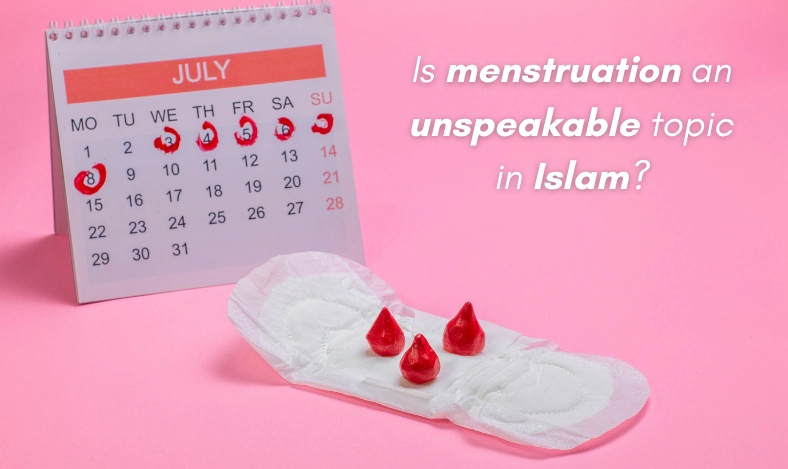Question
Assalamu Alaikum,
I have a question about practising Azan in the newborn’s ear. I already knew about the answer but one of my family friends needed to have a legitimate written source to get it confirmed.
Jazakumullah Khair
Answer
Salaam
Thank you for writing to us.
I shall provide a translation of the research paper our esteemed scholar Dr Muhammad Amir Gazdar produced on this matter.
Translation: Mushfiq Sultan
If we analyze the practice of reciting the Adhan (call to prayer) and Iqamah (second call to prayer) in the ear of a newborn from a research perspective, it becomes clear that there is no basis for this practice in the Qur’an, Sunnah, and the reliable records of the knowledge and actions of the Prophet Muhammad (PBUH). It is not only impossible to prove any scholarly consensus within a single school of Islamic jurisprudence regarding the legitimacy of this practice, but there is also no evidence of the Muslim community’s unanimous agreement on its endorsement by the Prophet Muhammad (PBUH).
Moreover, when all the narrations related to this subject attributed to the Prophet Muhammad (PBUH) are examined against the criteria of Hadith criticism, it is found that not a single narration meets the standards of authenticity. All early sources of Islamic knowledge are entirely silent on this matter. Even the early jurists up to the fourth century Hijrah did not speak positively about this Adhan and Iqamah.
Those later jurists who accepted this practice did so based on weak and unreliable narrations. No sound argument has ever been presented by any scholar in this regard. Additionally, even among those scholars who believe in the legitimacy of this practice, there are differing opinions on some aspects. When Imam Malik was informed about this practice of reciting Adhan in the ear of a newborn, he not only declared it unapproved but also disliked it. Some contemporary scholars have also expressed similar views. In our opinion, the correct view on this matter is that it is not a legitimate practice.
For those seeking detailed research on this issue, the following points summarize my investigation:
It should be fundamentally understood that without a doubt, the ultimate source and reference for Islam, and our sole guide until the end of time, is the esteemed personality of Muhammad, the Messenger of Allah (PBUH). Any act deemed legitimate and Sunnah by him holds the status of a ruling in Islamic Sharia for us. Conversely, any act not endorsed by him cannot be given the status of Sharia in any way. The divine religion conveyed to us by him has reached us solely in the form of the Qur’an and Sunnah. Therefore, if we can derive any revealed directives, we can do so only from these two sources.
Regarding the issue at hand, I have conducted thorough research and compiled a detailed paper in Arabic. For the benefit of people, I present a summary of that paper here:
- A scholarly analysis shows that the sources of Islamic Sharia (the Qur’an and the Sunnah) and all early sources from the initial period of Islamic knowledge are entirely silent about the legitimacy of reciting Adhan in the right ear and Iqamah in the left ear of a newborn.
- There is no scholarly evidence proving that the Prophet Muhammad (PBUH) practised this throughout his life or prescribed it as part of the religion for Muslims. Neither of these aspects is substantiated even at the level of solitary reports (akhbar al-ahad).
- No traces can be found in history, biographies, or traditions indicating that the companions of the Prophet Muhammad (PBUH) practised this Adhan and Iqamah during or after the Prophet’s time. There is also no evidence that they introduced this practice to subsequent generations. Thus, all early sources in Islamic knowledge (history, biographies, traditions, and juristic texts) are entirely silent about this practice.
- Among the early jurists, the first opinion found in Islamic jurisprudence is that of Imam Malik (may Allah have mercy on him) (d. 179 AH). He not only did not acknowledge the legitimacy of reciting Adhan for a newborn but also disliked it (Al-Nawadir wal-Ziyadat Ala Ma Fi Al-Mudawwanah Min Ghayriha Min Al-Ummihat, Ashhab bin Abdul Aziz Al-Qaisi Al-Masri, 4/337). The plausible reason behind Imam Malik’s view is that an unreliable narration about the Adhan for a newborn might have reached him, or he might have seen someone practising it, which led him to deny it as part of the Sharia. If this practice had been an established Sunnah, the people of Medina at that time would have certainly practised it, and Imam Malik would have known about it through their actions. In that case, there would have been no room for him to deny and dislike it.
- Among contemporary Arab scholars, the following scholars have expressed views similar to that of Imam Malik regarding reciting the Adhan and Iqamah in the ears of a newborn, i.e. denying it to be part of the Sharia:
- Sheikh Nasiruddin Albani (may Allah have mercy on him)
- Sheikh Abdul Mohsin bin Hamad Al-Abbad (may Allah preserve him)
- Sheikh Abdul Aziz Al-Tarifi (may Allah preserve him)
- Sheikh Dr. Omar bin Abdullah Al-Muqbil (may Allah preserve him)
- Sheikh Abdullah Al-Humadi (may Allah preserve him)
- Sheikh Hamad bin Abdullah Al-Ali (may Allah preserve him)
- Sheikh Dr. Sulaiman Al-Issi (may Allah preserve him)
- Sheikh Dr. Khalid bin Ali Al-Mushayqih (may Allah preserve him)
The books of the other three Imams among the four prominent schools of thought (Hanafi, Shafi’i, and Hanbali) are entirely silent on the issue of reciting Adhan and Iqamah for a newborn. No direct texts on this matter have been transmitted from them. There are no narrations related to this issue from their students, and all their books are entirely silent on this matter.
- An exhaustive review of the authorities of Hadith indicates that the first scholar to include a narration related to this issue was Imam Abu Dawud (d. 204 AH), who mentioned a practical narration in his Musnad (Musnad Tayalisi, Hadith No. 970). However, scholars of Hadith consider it a weak (daif) narration and thus unreliable (Silsilat Al-Ahadith Al-Daifa Wal-Mawdu’a, Nasiruddin Albani, 1/493-494).
- After Imam Tayalisi, Imam Abu Ya’la Al-Mawsili (d. 307 AH) included a verbal narration in his Musnad (Musnad Abu Ya’la, Hadith No. 6780). However, this narration is also considered fabricated (mawdu’) and unreliable by Hadith scholars (Silsilat Al-Ahadith Al-Daifa Wal-Mawdu’a, Nasiruddin Albani, Hadith No. 321; Musnad Abu Ya’la, edited by Sheikh Hussein Asad, 12/150).
- Important Hadith texts that do not contain any report related to Adhan and Iqamah for a newborn include:
- Muwatta Imam Malik
- Musnad Al-Shafi’i
- Sahih Bukhari
- Sahih Muslim
- Sunan Ibn Majah
- Sunan Al-Nasa’i
- Collecting all narrations related to this subject from different sources results in a total of 24 narrations in Hadith books. These narrations, which include seven different texts, are categorized as follows: five practical narrations, one verbal narration, and one combined verbal and practical narration. The texts of these narrations are as follows:
- Abu Rafi (RA) said that when Fatimah (RA) gave birth to Hasan bin Ali (RA), he saw the Prophet Muhammad (PBUH) reciting the Adhan of prayer in Hasan’s ear.
- Abdullah bin Abbas (RA) narrated that when Hasan bin Ali (RA) was born, the Prophet Muhammad (PBUH) recited the Adhan in his right ear and Iqamah in his left ear.
- Abu Rafi (RA) said that when Fatimah (RA) gave birth to Husayn (RA), he saw the Prophet Muhammad (PBUH) reciting the Adhan for prayer in Husayn’s ear.
- Abu Rafi (RA) narrated that the Prophet Muhammad (PBUH) recited the Adhan in the ears of Hasan and Husayn at their birth.
- Abdullah bin Abbas (RA) narrated that the Prophet Muhammad (PBUH) told Umm al-Fadl bint al-Harith al-Hilaliyyah, “When your child is born, bring him to me.” She said that when her child was born, she took him to the Prophet Muhammad (PBUH), who recited the Adhan in his right ear and Iqamah in his left ear, put his saliva in his mouth, and named him Abdullah.
- Husayn bin Ali (RA) narrated that the Prophet Muhammad (PBUH) said that whoever’s child is born and he recites the Adhan in the right ear and Iqamah in the left ear, “Um al-Subyan” (a type of disease or condition) will not harm the child.
- Abu Rafi (RA) narrated that the Prophet Muhammad (PBUH) recited the Adhan in the ears of Hasan and Husayn at their birth and instructed others to do the same.
- Reviewing the narrations based on the companions of the Prophet Muhammad (PBUH), it is clear that only three companions, Abdullah bin Abbas, Abdullah bin Umar, and Abu Rafi (RA), are the primary sources for all these narrations. No other companions have narrated anything on this topic.
The most important point is that, according to the research of Hadith scholars, all these narrations are weak or fabricated. None of them are authenticated with a sound chain of transmission. Therefore, the practice of reciting Adhan and Iqamah in the ears of a newborn and its legitimacy cannot be established from the Prophet Muhammad (PBUH) based on these unreliable narrations.
- Apart from the Marfu’ narrations, there is only one related narration (Athar) attributed to Umar bin Abdul Aziz (RA) among the halted (Mawquf) and disconnected (Maqtu’) narrations. It is said that whenever a child was born to him, he would take the swaddled child, recite the Adhan in his right ear and Iqamah in his left ear, and then name the child (Musannaf Abd al-Razzaq, 7985). However, this narration is also extremely weak and unreliable (Tahfat al-Mawdud with authentication by Sheikh Hassan bin Abdul Mannan, p. 38).
(Note: All the abovementioned narrations, their original texts, references, and chains of transmission are cited in the original paper by the author.)
- The first Hanafi scholar to discuss the legitimacy of Adhan and Iqamah for a newborn was Mulla Ali Qari (d. 1014 AH) in his book “Mirqat al-Mafatih Sharh Mishkat al-Masabih” (12/418). According to my research, no Hanafi scholar before him mentioned the legitimacy of this practice.
In Maliki jurisprudence, the first scholar to mention the legitimacy of Adhan for a newborn was Muhammad Abu al-Qasim al-Abdari (d. 897 AH) in his book “Al-Taj wal-Iklil li Mukhtasar Khalil” (3/257).
Among Shafi’i scholars, the first jurist to discuss the desirability (istihbab) of this Adhan was Abu Ishaq Ibrahim bin Ali Al-Shirazi (d. 476 AH) in his book “Al-Muhadhab fi Fiqh al-Imam al-Shafi’i” (1/241-242).
In Hanbali jurisprudence, Ibn Qudamah Al-Maqdisi (d. 620 AH) is, according to my research, the first jurist to discuss the desirability (istihbab) of Adhan and Iqamah for a newborn in his book “Al-Mughni fi Fiqh al-Imam Ahmad” (11/120).
- Important points regarding scholars who considered the practice to be from the Sharia:
- All the scholars who considered Adhan and Iqamah for a newborn legitimate are from the fifth century or later. As mentioned above, the books of all early jurists are entirely silent on the legitimacy of this practice. Imam Malik (may Allah have mercy on him) explicitly denied its legitimacy.
- Historically, Shafi’i scholars were the first to hold this view.
- Even among the later scholars who considered this practice as Sunnah or desirable (mustahabb), there is a disagreement. Some believe that only reciting Adhan in the right ear of the newborn is Sunnah, while reciting Iqamah in the left ear is not. Others consider both Adhan and Iqamah in the respective ears as Sunnah.
- All these later scholars based their opinions on the weak and fabricated narrations mentioned above. Critical research clearly shows that religious acts of worship of this kind are not established by such evidence. Besides these unreliable narrations, there is no other evidence to support the practice of Adhan and Iqamah for a newborn.
- Some scholars who accepted the desirability of Adhan and Iqamah for a newborn have also discussed the wisdom behind this practice in their books. It is important to note that the wisdom mentioned is based on their personal understanding and judgment, not on any religious text. That is why there is disagreement among scholars regarding the wisdom of this practice. Since the legitimacy of the practice itself is not established from the primary sources of Islam, there is no need to explore or state its wisdom.
Conclusion:
Considering all the aforementioned points, the following three fundamental aspects can help us reach a correct and definitive opinion on this issue:
- The practice of reciting Adhan in the right ear and Iqamah in the left ear of a newborn is essentially a verbal act of worship because it is a form of dhikr (remembrance of Allah). In matters of worship, the principle is that since worship involves the relationship between Allah and His servants, it must be expressly commanded by the Almighty Himself through His messengers. Human intellect and reasoning have no role in inventing a worship ritual. Therefore, any act considered as verbal or physical worship must have a clear basis in the primary sources of Islam (the Qur’an and the Sunnah). This means that worship is solely based on the teachings of Sharia, and has nothing to do with human intellect, reasoning, customs, dreams, revelations, regional or tribal traditions. A worship ritual is only recognized as such if it has been prescribed by the Sharia. Hence, any act not established as a worship ritual in the primary sources of Islam cannot be considered as such.
Given that reciting Adhan in the right ear and Iqamah in the left ear of a newborn is an act of worship in its very nature, it cannot be considered a religious duty in Islam due to the lack of any sound evidence from the Qur’an and the Sunnah.
- This practice is not only an act of worship but also an independent act. It is neither a voluntary act nor an act associated with an established Sunnah that can be derived from a few narrations by companions. The narrations on this topic themselves are not established. If an act of worship is a voluntary act or a branch of an established Sunnah, we can certainly derive it from solitary reports (akhbar al-ahad) provided they are authentically transmitted. For example, the obligatory five daily prayers are an established Sunnah in Islamic Sharia. Hence, the Prophet’s practice of performing additional voluntary prayers (nawafil) before or after the obligatory ones can be derived from solitary reports. However, independent acts of worship, being part of divine law, are prescribed for all Muslims. Such acts are prescribed and implemented by the Sharia for all followers, and their transmission does not rely solely on a few individuals’ reports. The evidence for such acts must be that the Sharia prescribes them universally, and they are transmitted by the Muslim community from one generation to another. For instance, the established Islamic practices like the Eid prayers were prescribed in this manner and have been transmitted by the companions and subsequent Muslims across generations. In our view, independent acts of worship are not established solely based on solitary reports, even if those reports are authentic.
Even examining the practice of Adhan and Iqamah for a newborn under this principle does not prove its validity in religion. Although it is an independent act of worship, there is no other evidence for it besides a few solitary reports. Moreover, those reports themselves do not meet the criteria to establish this practice from the Prophet Muhammad (PBUH).
- The practice of reciting Adhan in the right ear and Iqamah in the left ear of a newborn also falls under the category of “general necessity” (umum balwa). This means it is an act that almost every Muslim and household would encounter, as the birth of children is a natural occurrence in every home, family, region, and era. If this practice were an established Sunnah in Islamic Sharia, it would be well-known to all Muslims who directly followed the Prophet Muhammad (PBUH), so they could practice it. If the Prophet Muhammad (PBUH) had indeed prescribed this practice, he would have conveyed it universally to all Muslims. Consequently, Muslims would have certainly known it as a Sunnah and practised it at the birth of their children, transmitting it to subsequent generations in the same manner. Such universally applicable practices and commands are transmitted in this way. The evidence for their legitimacy as Sunnah in Islamic Sharia requires that they are universally transmitted from the Prophet Muhammad (PBUH) to all Muslims across generations. This is why we believe such commands are not established solely based on solitary reports, even if those reports are authentic. Examining the practice of Adhan and Iqamah for a newborn under this principle shows that it is not established in Islam.
Summary
The practice of reciting Adhan in the right ear and Iqamah in the left ear of a newborn is not a Sunnah and not prescribed by the Sharia. The Prophet Muhammad (PBUH) did not prescribe or implement it as a Sunnah, and no reliable source has transmitted this practice from him. This view is supported by Imam Malik and several contemporary scholars. According to my research, this practice emerged in later periods due to the appearance of certain unreliable narrations. Some jurists of that time, accepting those narrations based on their understanding, declared it a desirable and legitimate act, leading to its spread among Muslims. Before this, there is no evidence of this practice in Muslim societies. Therefore, the correct scholarly opinion regarding this act is that it should be placed in the category of innovations (bid’ah).
Related Video
https://www.javedahmedghamidi.org/#!/video/5ac5b5ec4f37b67b2f8b2581










Leave a Reply